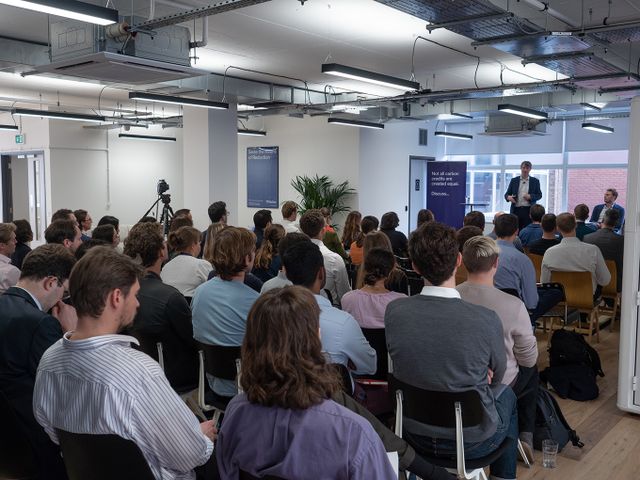
Top takeaways from the BeZero Carbon Removal Conference
Here are some key takeaways
Recommendations on carbon markets and carbon removals are being considered in the Government's upcoming Net Zero Review.
Transparency and quality assurance in the voluntary carbon market will be central to the market’s success.
The carbon removal market needs to carve out an effective story to maintain and improve public support.
The day started off with a private lunch roundtable discussion with Rt Hon Chris Skidmore MP entitled Carbon for growth: how to harness the voluntary carbon market to tackle climate change and spur on growth. The participants were drawn from across a range of disciplines, including but not limited to: Rachel Wolf, Founder of Public First; Christopher Webb, Head of Carbon Markets at HSBC; Barnaby Lynch, Climate Advisor at Watershed; and Josh Burke, Senior Fellow at the Grantham Institute at the LSE. The discussion was held under Chatham House rule, but was used as an evidence gathering session by Chris Skidmore for his upcoming Net Zero Review.

Following this, the doors to the BeZero Carbon Removal Conference were opened and Chris Skidmore set out his stall in the opening Keynote Speech. The MP set out his six pillars for tackling climate change: securing net zero; powering net zero; net zero and the economy; place-based net zero; the net zero individual; and, net zero and the future. He made it clear that the review’s role is to create political support and to further illuminate the benefits of reaching net zero. Without going into detail on his review’s recommendations, he expressed support for the role of the voluntary carbon market and was enthusiastic about the potential for carbon removal technologies to have a key role in the UK’s net zero future.

The speech was followed by the first panel discussion of the day Support to grow: The role of Government in fostering carbon removal innovation and growth, with Alex Hitchcock, former Special Adviser to Alok Sharma, Stuart Gregg from Carbon Engineering, Daisy Dunne from CarbonBrief and Ted Christie-Miller from BeZero Carbon (chair).
The discussion centred around what assistance developers and market makers need to see from the Government to help the carbon removal industry scale. This included taking lessons from the scaling up of the renewables sector, in particular the need to have guaranteed revenue streams for projects to achieve project finance. Following this, there was a detailed discussion around the potential inclusion of certain carbon removal credits into the UK Emissions Trading Scheme and the EU Emissions Trading Scheme.
A key outcome of this discussion was that if these technologies such as direct air capture and enhanced weathering are to scale, there needs to be a significant drive for data transparency, to ensure the market is credible and robust.

After a short tea break the conference then went into a panel entitled Making the market: How can we harness the power of the voluntary carbon market to scale engineered carbon removal? with Nick Chadwick from Mission Zero, Sanna O’Connor Morberg from Carbon Direct, Antti Vihavainen from Puro.Earth, James Murray from BusinessGreen and Ted Christie-Miller from BeZero Carbon (chair).
After some brief introductions from the panellists discussing the state of the market and what they think needs to be done, James Murray from BusinessGreen set the trajectory for the session with a robust challenge to the room, arguing that the carbon removal industry needs to figure out what the story of the sector is. He flagged concerns that the sector is in danger of having a communication failure if it is not careful. The panel agreed and were interested in the lessons to be learnt from previous technological developments, such as solar, wind and nuclear. There was an appreciation that actors in the carbon market need to ensure they are rowing in the same direction and not pitting against each other.
A key outcome of the session was that while the Government has a key role to play in scaling this market, it is up to businesses in the ecosystem to create a positive narrative around carbon removal and ensure that it takes key stakeholders along with it.
In the closing remarks for the conference, the chair noted how far the carbon removal industry has come over the last few years. The conference had brought together leaders from Parliament, the Civil Service, Finance, Academia, Business and beyond, which in and of itself is a remarkable achievement considering how nascent the industry was just three years ago.